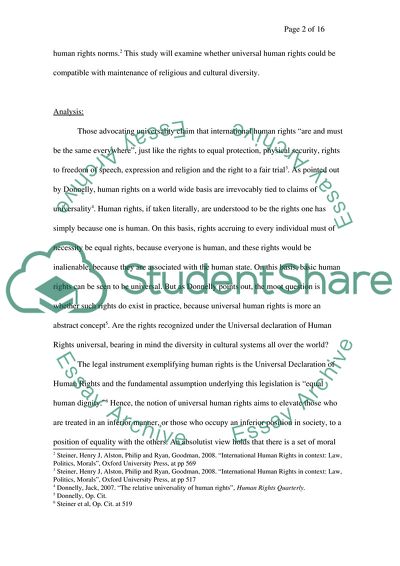Cite this document
(“Is legal pluralism incompatible with the human rights An analysis of Essay”, n.d.)
Is legal pluralism incompatible with the human rights An analysis of Essay. Retrieved from https://studentshare.org/miscellaneous/1548982-is-legal-pluralism-incompatible-with-the-human-rights-an-analysis-of-the-case-law-of-the-european-court-of-human-rights-in-relation-to-turkey
Is legal pluralism incompatible with the human rights An analysis of Essay. Retrieved from https://studentshare.org/miscellaneous/1548982-is-legal-pluralism-incompatible-with-the-human-rights-an-analysis-of-the-case-law-of-the-european-court-of-human-rights-in-relation-to-turkey
(Is Legal Pluralism Incompatible With the Human Rights An Analysis of Essay)
Is Legal Pluralism Incompatible With the Human Rights An Analysis of Essay. https://studentshare.org/miscellaneous/1548982-is-legal-pluralism-incompatible-with-the-human-rights-an-analysis-of-the-case-law-of-the-european-court-of-human-rights-in-relation-to-turkey.
Is Legal Pluralism Incompatible With the Human Rights An Analysis of Essay. https://studentshare.org/miscellaneous/1548982-is-legal-pluralism-incompatible-with-the-human-rights-an-analysis-of-the-case-law-of-the-european-court-of-human-rights-in-relation-to-turkey.
“Is Legal Pluralism Incompatible With the Human Rights An Analysis of Essay”, n.d. https://studentshare.org/miscellaneous/1548982-is-legal-pluralism-incompatible-with-the-human-rights-an-analysis-of-the-case-law-of-the-european-court-of-human-rights-in-relation-to-turkey.


